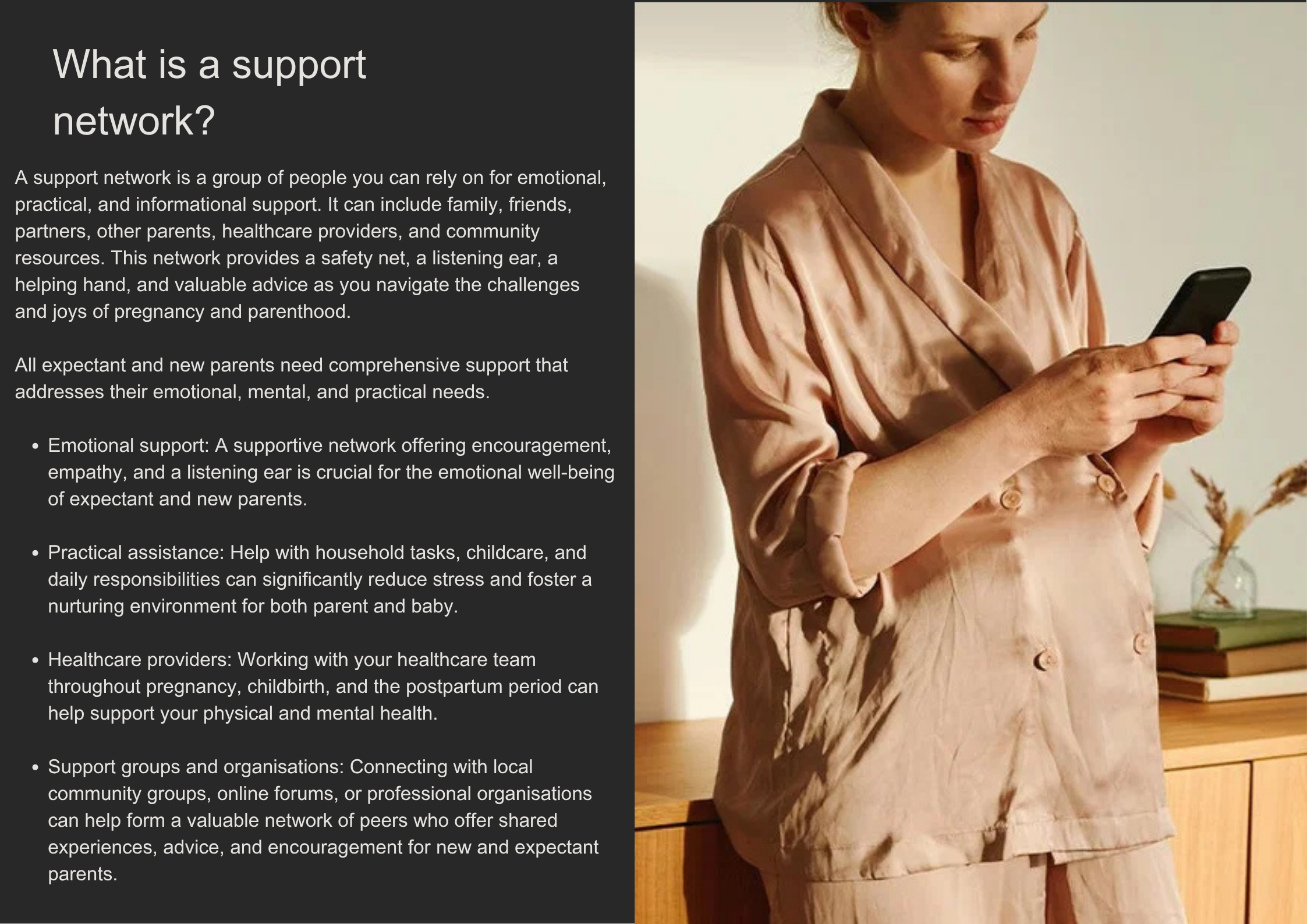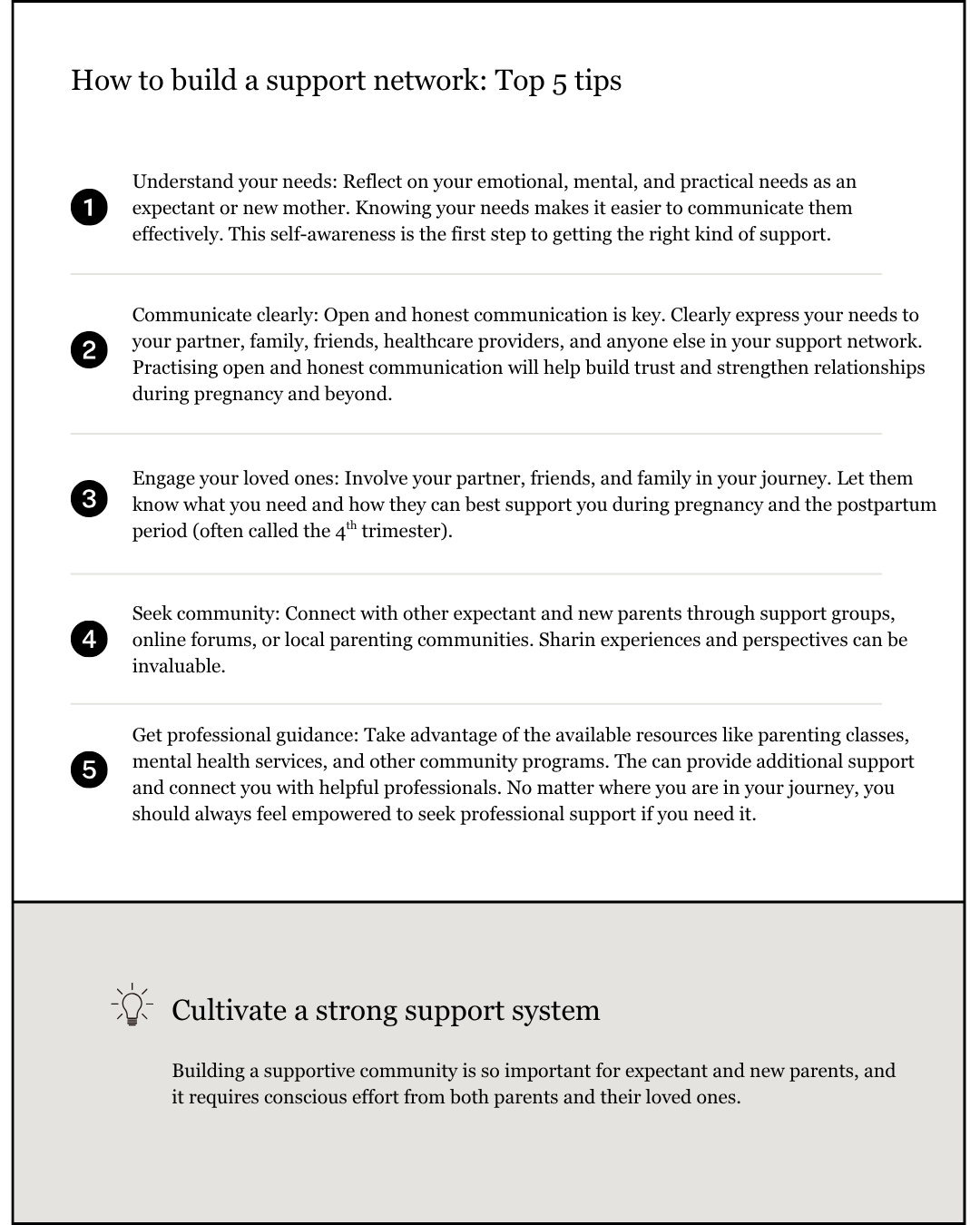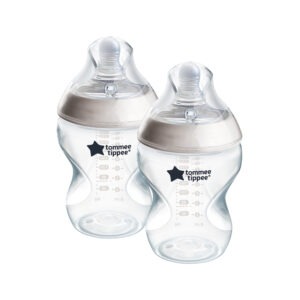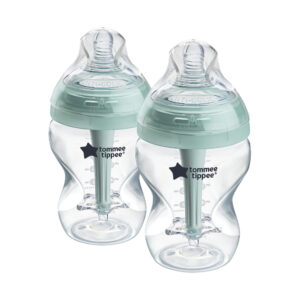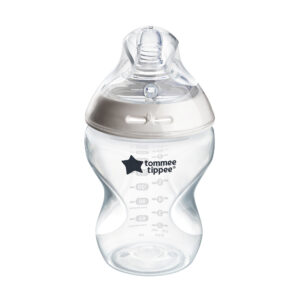Pregnancy

How to build a support network in pregnancy and beyond
How to build a support network in pregnancy and beyond

Pregnancy and parenthood are transformative experiences, and having a strong support network can make a world of difference. From sharing joys and anxieties with loved ones to accessing practical help with childcare, a supportive community can provide invaluable emotional and logistical support.
In this post, we’ll cover practical tips on how to build a supportive community during your pregnancy and beyond, from navigating family dynamics to finding local resources.

- Perinatal mental health support and services – Mind
- The UK’s leading charity for parents | NCT
- Parenting: Expert Resources & Support from Real Moms | Peanut
- Pregnancy information | Tommy’s
You can also find more organisations that offer support on the Maternal Mental Health Alliance website.
A support network during pregnancy and postpartum is crucial for a parent’s well-being and the healthy development of their baby. Here’s why:
Emotional and physical health for parent (and baby):
- Reduced stress and anxiety: Pregnancy and the postpartum period can be emotionally challenging, with hormonal changes, physical discomfort, and the anxieties off parenthood. support network provides a safe space to share feelings, receive reassurance, and reduce stress.
- Improved mood: Supportive relationships can help reduce the risk of depression and anxiety, which are more common during and after pregnancy.
- Increased self-esteem: Encouragement and positive reinforcement from loved ones can boost a new parent’s confidence in their ability to care for their baby.
- Heathier behaviours: Support can encourage healthy habits during pregnancy, such as good nutrition regular exercise, and attending prenatal appointments.
- Better sleep: Practical support with household tasks or childcare can allow new parents to get more rest, which is essential for both their physical and mental recovery.
- Positive parenting: A well-supported parent is more likely to have the emotional resources to bond with their baby and provide sensitive, responsive care, which is crucial for healthy development.
- Secure attachment: Supportive relationships contribute to a secure attachment between parent and baby, which has long-term benefits for the child’s emotional and social well-being.
Practical support:
- Daily tasks: Support with chores, cooking, errands, and childcare can be invaluable, especially in the early weeks after birth when parents are recovering and adjusting to a new routine with their new arrival.
- Information and advice: Family, friends, and support groups can offer guidance on everything from breastfeeding to baby sleep, helping new parents feel more prepared.
In summary, a strong support network can act as a buffer against stress, promote healthy behaviours, and empower newborn parents to navigate the challenges of pregnancy and parenthood with confidence. This also benefits both the parent’s well-being and the healthy development of their new baby.










